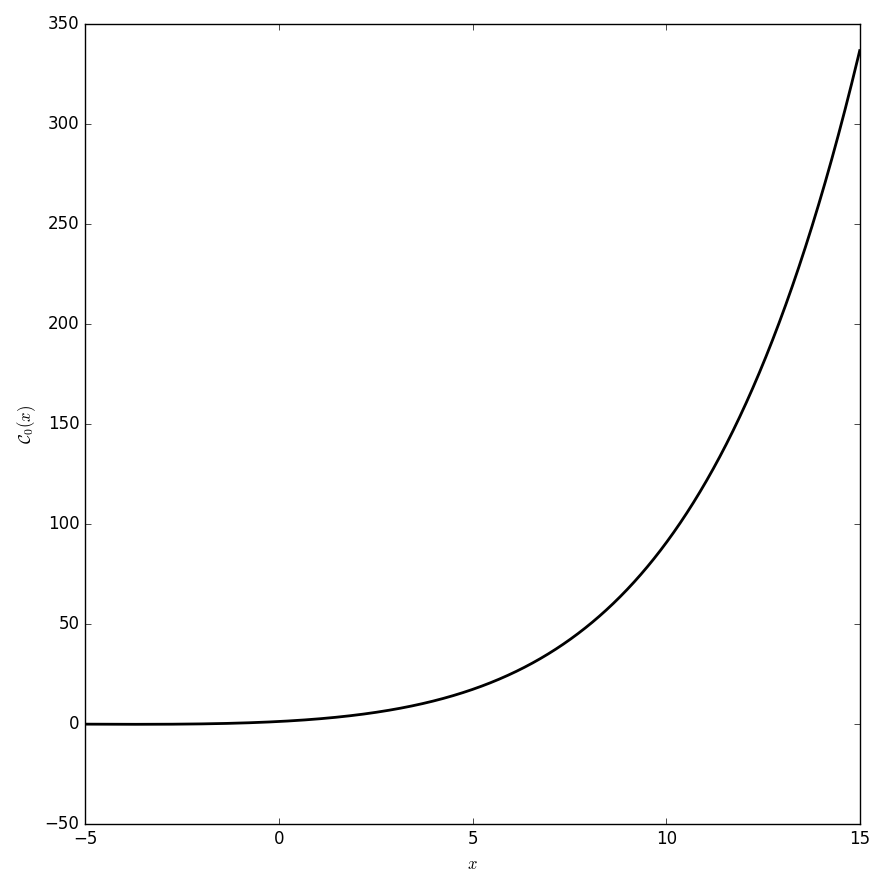Difference between revisions of "Bessel-Clifford"
From specialfunctionswiki
| (6 intermediate revisions by the same user not shown) | |||
| Line 1: | Line 1: | ||
| − | + | The Bessel-Clifford function $\mathcal{C}_n$ is defined by | |
| − | $$\mathcal{C}_n(z)=\displaystyle\sum_{k=0}^{\infty} \ | + | $$\mathcal{C}_n(z)=\displaystyle\sum_{k=0}^{\infty} \dfrac{1}{\Gamma(k+n+1)} \dfrac{z^k}{k!},$$ |
| + | where $\dfrac{1}{\Gamma}$ denotes the [[reciprocal gamma]] function. | ||
| + | |||
| + | <div align="center"> | ||
| + | <gallery> | ||
| + | File:Besselcliffordn=0plot.png|Graph of $\mathcal{C}_0$ on $[-5,15]$. | ||
| + | </gallery> | ||
| + | </div> | ||
| + | |||
| + | |||
| + | =Properties= | ||
| + | [[Derivative of Bessel-Clifford]]<br /> | ||
| + | [[Bessel J in terms of Bessel-Clifford]]<br /> | ||
| + | [[Relationship between Bessel-Clifford and hypergeometric 0F1]]<br /> | ||
| + | |||
| + | =References= | ||
[[Category:SpecialFunction]] | [[Category:SpecialFunction]] | ||
Latest revision as of 16:03, 29 April 2017
The Bessel-Clifford function $\mathcal{C}_n$ is defined by $$\mathcal{C}_n(z)=\displaystyle\sum_{k=0}^{\infty} \dfrac{1}{\Gamma(k+n+1)} \dfrac{z^k}{k!},$$ where $\dfrac{1}{\Gamma}$ denotes the reciprocal gamma function.
Properties
Derivative of Bessel-Clifford
Bessel J in terms of Bessel-Clifford
Relationship between Bessel-Clifford and hypergeometric 0F1
